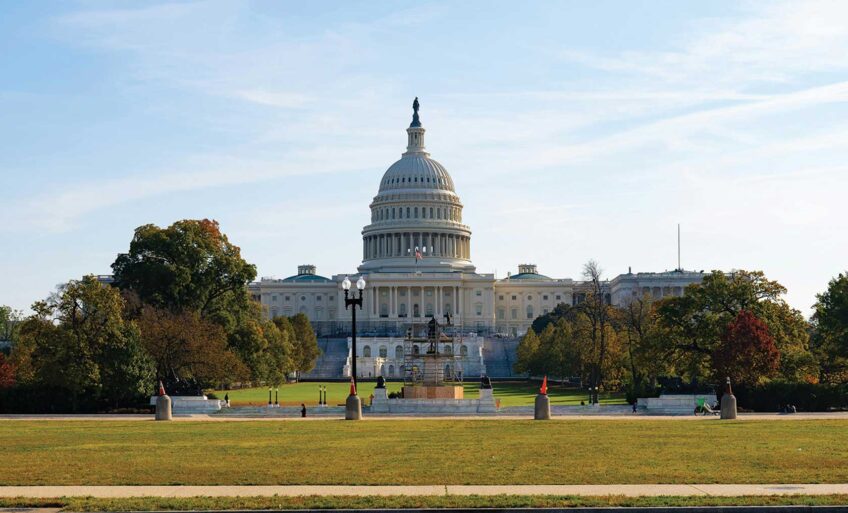Did Palin really say she wouldn’t hire blacks?
Sarah Palin admittedly hasn’t had much of a track record when it comes to acknowledging, let alone promoting, diversity during her short tenure as Alaska’s governor. She’s on record with a terse utterance on hate crimes legislation and another on cultural diversity.
During the 2006 gubernatorial campaign, she told the Eagle Forum that she opposed expanded hate crime legislation. In her gubernatorial campaign booklet in 2006, Palin gave her equally brief views on discrimination, saying simply that she and her running mate would provide opportunities for all Alaskans.
There is no record that Palin has made any other public statements on diversity and minority issues since. On its own, this might be cause for only a slight eyebrow raise.
But Palin’s skimpy track record and paucity of words on diversity are relatively tame compared to the far more damaging accusation that’s making the rounds.
On April 29, 14 of Alaska’s black leaders — including prominent ministers, NAACP officials and community activists — met with Palin to voice their complaint over minority hiring and job opportunities. During the meeting, she allegedly said that she didn’t have to hire any blacks. Even more damning, she purportedly said that she didn’t intend to hire any.
This charge is so incendiary that it sounded like yet another one of the legion of Palin urban legends that have fueled the cyber gossip mill from the instant Republican presidential contender John McCain tapped her for his ticket. The charge had to be confirmed or denied. If Gov. Palin or any other public official flatly said that they had no intention to hire blacks, that would be politically unpardonable. And for a potential vice president, it would — and should — be the kiss of death.
In a phone message, Megan Stapleton, a Palin spokesperson who works with the McCain-Palin campaign committee, vehemently denied that Palin ever said that she would not hire blacks. Sharon Leighow, a communications spokesperson in the Alaska governor’s office, also disputed the allegation. She said that Palin’s press secretary was part-African American, and that two of her senior advisors were Filipino and Korean.
But Leighow was also adamant that Palin did not hire staff persons based on color, but solely on talent and skill. As she put it, “Gov. Palin is totally colorblind.”
Gwen Alexander, president of the African American Historical Society of Alaska and the one who initially reported Palin’s quip, stuck by her contention that Palin made the racially charged retort. She also charged that Palin did not support or even officially acknowledge the group’s annual Juneteenth commemoration.
June 19 is celebrated as the date of slave emancipation in Texas. Alaska is one of 13 states that have designated it an official holiday. Other Alaska governors have sent the traditional greeting and acknowledgement to the society. Alexander says Palin snubbed the group.
The unofficial charge, then, is that Palin is insensitive to the state’s African Americans, and that includes refusing to hire and appoint African Americans. That charge is hotly disputed by Palin’s staffers, who cite names and numbers to back it up.
But apart from the veracity of the charge and the denial, Palin’s statement that she’s absolutely colorblind when it comes to hiring and appointments does set off warning bells.
The “colorblind” argument strikes to the heart of the continuing debate over what and how far all public officials should go to ensure that their staffs and appointments truly represent the broadest diversity possible. Officials must conduct concerted outreach efforts to make that happen.
Palin’s colorblind posture, more often than not, has been nothing but a convenient excuse to not seek out, hire or promote African Americans and other minorities in her administration, no matter how qualified.
Diversity is a major issue in this election. It’s implicit in Democratic rival Barack Obama’s White House run. It’s explicit in Ward Connerly’s anti-affirmative action initiative, which will appear on the ballot in three states this November. Obama opposes it. McCain backs it, and so does Palin.
Palin’s commitment to diversity is no small point in Alaska. According to data from the 2000 Census, blacks make up officially about 4 percent of the state’s population. But those who self-identify at least in part as African American give the percentage a considerable bump. This is not an insignificant number, especially when American Indians, Aleuts, Eskimos and Asians are considered. Minorities then make up about one-quarter of Alaska’s population, making the state one of the nation’s most ethnically diverse.
Diversity, then, must be more than a word that an Alaska governor pays campaign lip service to and then ignores.
Palin’s campaign and gubernatorial spokespersons say the knock that she is hostile to blacks and minorities is unfair. That may well be true. But to those Alaskan black leaders who challenged Palin on her administration’s minority hiring practices, the knock is much deserved.
Earl Ofari Hutchinson is a syndicated columnist, author and political analyst. His forthcoming book is “How the GOP Can Keep the White House, How the Democrats Can Take it Back.”






